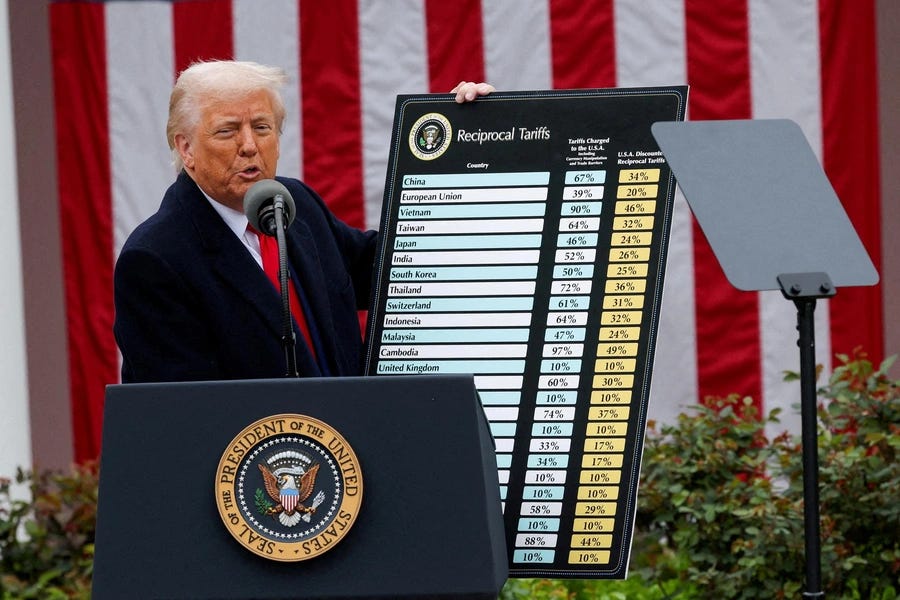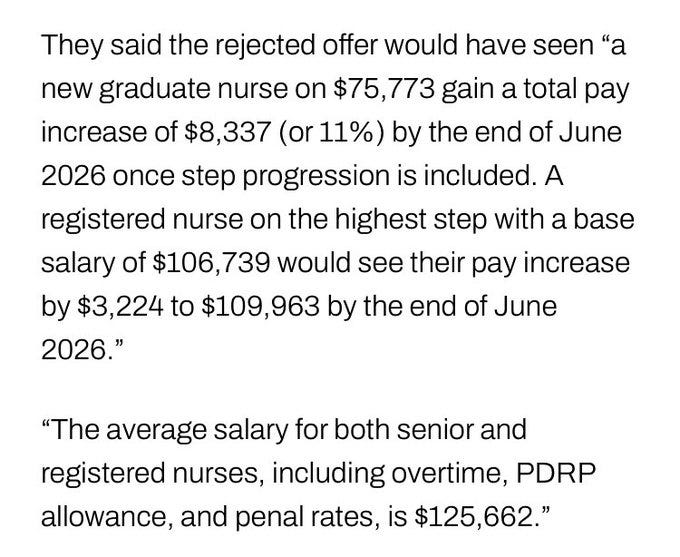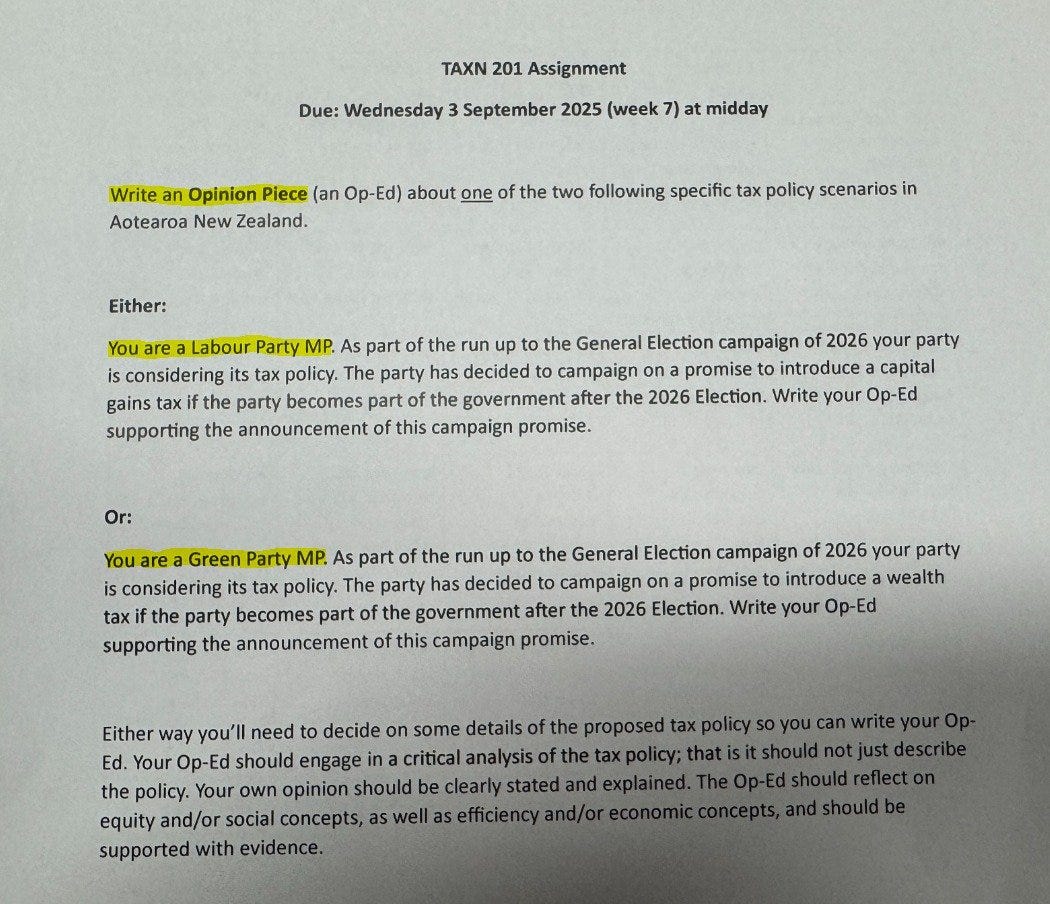$125,000 average pay for nurses so why are they striking?
The Police Association should take a few leaves out of the New Zealand Nursing Organisation’s book when it comes to pay negotiations. The NZNO has had tremendous success in recent years in improving nurses’ pay, but then they do have the ability to strike whereas the underpaid police cannot. The nurses went on strike again this week but they have placed a lot of emphasis on understaffing as growing public awareness of how much they are actually paid has somewhat diminished support for their strikes.
With graduate nurses earning more than $75,000 (and due another 11% raise) when, according to Infometrics, the mean annual earnings in New Zealand were $ 78,731 for the year ending March 2024, it is tricky to claim unfairness within context. Additionally, Health New Zealand reports that the average salary of senior and registered nurses is $125,000 including penal rates etc.
It is undoubted that our health system is overwhelmed after decades of underinvestment and understaffing is a valid complaint. However, it is also true that this government has spent more on health than any New Zealand government ever. They have also hired more than 2000 additional nurses and 600 doctors since they took office at the end of 2023. Which begs the question as to where NZNO were when our health system was even more underfunded and understaffed under the last government.
I made a TikTok contrasting perspectives on this.
Attorney General Judith Collins highlights issues with electoral law reform
In her report on the removal of election day voting enrolment, the Attorney General has referenced the large number of people who registered or enrolled to vote during advanced voting at the last election (450,000) as well as the 110,000 who did so on election day.
In New Zealand, the Attorney-General is responsible for upholding the rule of law and constitutional integrity, and that includes reviewing legislation for consistency with fundamental rights. In this case, Judith Collins deemed that denying voters the political franchise is a "heavy price" to speed up the election result by a week or two.
When the Attorney General critiques a bill, they’re not doing it as a politician with personal views, they’re acting as the guardian of the New Zealand Bill of Rights Act 1990 which requires them to “Notify Parliament if a bill is inconsistent with the rights protected by the Bill of Rights Act.”
However, the expectation that people enrol before election day is a common one. Even Australia which has compulsory voting closes enrolment a few weeks before the big day. In the UK and France enrolment closes about 2 weeks before election day.
It is undoubted that our health system is overwhelmed after decades of underinvestment and understaffing is a valid complaint. However, it is also true that this government has spent more on health than any New Zealand government ever. They have also hired more than 2000 additional nurses and 600 doctors since they took office at the end of 2023. Which begs the question as to where NZNO were when our health system was even more underfunded and understaffed under the last government.
I made a TikTok contrasting perspectives on this.
Attorney General Judith Collins highlights issues with electoral law reform
In her report on the removal of election day voting enrolment, the Attorney General has referenced the large number of people who registered or enrolled to vote during advanced voting at the last election (450,000) as well as the 110,000 who did so on election day.
In New Zealand, the Attorney-General is responsible for upholding the rule of law and constitutional integrity, and that includes reviewing legislation for consistency with fundamental rights. In this case, Judith Collins deemed that denying voters the political franchise is a "heavy price" to speed up the election result by a week or two.
When the Attorney General critiques a bill, they’re not doing it as a politician with personal views, they’re acting as the guardian of the New Zealand Bill of Rights Act 1990 which requires them to “Notify Parliament if a bill is inconsistent with the rights protected by the Bill of Rights Act.”
However, the expectation that people enrol before election day is a common one. Even Australia which has compulsory voting closes enrolment a few weeks before the big day. In the UK and France enrolment closes about 2 weeks before election day.
Trump slaps New Zealand with 15% tariffs - what does it mean?
A trade deficit occurs when a country imports more than it exports. For example, if the USA buys $600 billion worth of goods from China but only sells $100 billion worth of goods to China, the trade deficit with China is $500 billion. Economically speaking, trade deficits aren't inherently bad as they can reflect strong domestic demand. But currently, the Trump administration are framing them as evidence of unfair trade deals, a result of loss of American manufacturing, and even a sign that the US is being “ripped off” by other countries. This is protectionism.

Trump’s strategy is to impose higher tariffs on countries with which the USA has a trade deficit. As New Zealand exports to America are of greater value than our imports from America, we’ve been slapped with 15% tariffs. Finance Minister Nicola Willis is right to call Trump’s approach a “blunt instrument” as we aren’t of much consequence to the USA but the fact of the trade deficit has seen us 'effectively punished nonetheless.
Prime Minister Christopher Luxon and Trade Minister Todd McClay have expressed disappointment but say talks with American counterparts will continue. They pointed out that either New Zealand companies will have to weather the costs of these tariffs or pass the costs on to their American customers. The trade deficit may close in the near future in any case given some of our imminent military purchases.
Labour’s reaction of trying to bash the government for the actions of President Donald Trump is irrational and either deliberately unfair or indicative of a deficit in trade and economics knowledge in the party.
The arguments for and against lifting crown board pay
Cabinet has agreed to lift the maximum annual fee for chairs of governance boards in the public sector from $90,000 to about $162,000. They argue that the fact that the private sector is paying members of boards more is affecting their ability to entice top talent onto public boards. Judith Collins told RNZ that the public service fees were “around 80 percent of the going rate” of private fees.
"This isn't beer and skittles. This is billions of dollars of public money. We need the very best people making governance decisions about it." - Finance Minister Nicola Willis
This argument is fair, but it is also fair for Chris Hipkins and Labour to argue that it is poor timing and a slap in the face for lower wage public service workers who are being told the government is tightening their belt. It is not, however, a pay rise, as the Opposition has claimed. It is raising the upper limit to which ministers can negotiate with prospective governance board members.
It is certainly bad optics for the government, but you tell me if it was avoidable or not.
Government to ban card surcharges
Those annoying surcharges that many stores impose on customers for using PayWave or certain credit card companies, are to become a thing of the past from around May next year. According to Commerce and Consumer Affairs Minister Scott Simpson:
“New Zealanders are paying up to $150 million in surcharges every year, including excessive surcharges of up to $65m.”
I am wary of governments sticking their oar in between customers and businesses as generally they just make things messier and worse. This law change will come at a cost to businesses but the NZ Herald reports that
“the surcharge ban would come in addition to the Commerce Commission reducing the interchange fees paid by businesses to accept Visa and Mastercard payments.
These make up about 60% of the service fees merchants pay. The recently announced change is expected to save businesses about $90m a year.”
The case that sparked the removal of section 7aa
A few years ago the story of Māori foster child Moana (not her real name) broke the hearts of New Zealanders. Her case was one of the main reasons cited for the removal of section 7aa from the Oranga Tamariki Act. In short, Oranga Tamariki placed Moana with foster parents who were white after she was removed from her mother’s care three times by the age of three and no other whānau could take her. By all accounts she was happy and healthy, but following the Labour Government’s aggressive emphasis on Māori foster children needing to be placed in ‘culturally appropriate’ homes, Oranga Tamariki waged a campaign against the foster parents because they weren’t Māori. Moana was eventually removed from their care and placed with a Māori whānau she didn’t know in a different city.
Oranga Tamariki has now been ordered to pay $108,000 in legal costs to the foster parents with Justice Helen Cull calling Oranga Tamariki’s behaviour “egregious” and saying:
“It was clear there’d been a policy change within the agency after Moana’s placement with the Smiths, which was being driven by the organisation’s senior management. This led the frontline social workers to prioritise kinship placement over other considerations, such as the psychological attachment of Moana to the caregivers.”
The only diversity Victoria University’s doesn’t like is thought diversity
The ACT Party posted a photo of an assignment assigned to students in Victoria University’s TAXN 201 course. The assignment appears to reflect a very narrow spectrum of acceptable political belief with the Green Party on one end and Labour on the other. Regardless of personal views, one would hope that students were getting an opportunity to learn about tax policy from left and right. Karl Marx, Adam Smith, Keynes, Piketty, Thatcher, and Friedman; they should be exposed to them all. Unfortunately, in 2025, trying to find a university that doesn’t actively indoctrinate students with a specific political agenda is hard.
Drill baby, drill: Shane Jones gets his revenge
Shane Jones has finally completed his reversal of the policy that basically gave him PTSD when New Zealand First were in government with Labour in 2017-2020. He had to stand next to Jacinda Ardern as she announced the banning of new offshore oil and gas exploration permits in 2018, his disagreement plain in the horror on his face. As he feared, the cost of electricity has skyrocketed and New Zealand’s energy security became very fragile.
The Guardian reports:
“On Thursday afternoon, the ruling right-wing coalition voted to reverse the ban after the third and final reading of the crown minerals amendment bill – a move it believes will alleviate energy shortages and high energy prices.”
The reversal of the ban featured in the NZ First coalition agreement and has seemed like Jones’ personal crusade. He has advocated strongly for the benefits to New Zealand’s economy, pointed out our kids are fleeing to go work in the Aussie mines, and derided the performative nature of the ban in that in order to keep the lights on following it Ardern’s government had to import tonnes and tonnes of Indonesian coal.
Decades late, BBC reports on Rotherham grooming gangs
The truth about decades of sexual abuse committed by predominantly Pakistani Muslim grooming gangs against British girls has finally exploded through the wall of cover ups and is being discussed openly. It is one of Britain’s worst collective failings; a true travesty of justice.
As reports of horrific gang rapes and state collusion to cover them up are revealed, the BBC has been suspiciously reluctant to report in depth on the matter. The media institution has reflected the attitudes of those who covered the scandal up, alleging that whistleblowers are racists and that discussing the matter threatens Britains diversity.
Finally, it seems, the scale of the problem has forced the BBC to report this week on police officers who took part in the grooming and the rapes saying 30 witness accounts seen by the media organisation “detail shocking allegations”:
Years of abuse from serving police officers, from the mid-90s to early 2000s, at the same time as being exploited by Rotherham grooming gangs
Most alleged victims were in their teens but some were as young as 11
One woman says as a child she would hear a police officer having sex with girls in exchange for drugs and money
Another woman says as a child she witnessed a police officer supplying illegal class A drugs to a grooming gang
Three women describe being beaten up by officers as children - one says this happened in a police cell
Anyone with a brain in New York says ‘anyone but Mamdami’
Polls suggest that Marxist nepo-baby Zohran Mamdani is likely to be the next mayor of New York. His alarming and inconsistent policies like defunding the police and seizing property have proved popular with the woke and white class. Despite having lived a life of immense privilege with armed security and gated communities in Uganda, Mamdani argues for open borders and disarming of the police and public.
Traditional Democrats and Republicans alike are horrified at the prospect of the young former rapper leading the United States’ biggest city. There is a collective cry of “anyone but him”. The alternatives are incumbent mayor Eric Adams; former Governor Andrew Cuomo; Curtis Sliwa, the Republican nominee; and Jim Walden, a lawyer. If they are to have any hope of defeating Mamdani the opposition must not split the vote. Instead they have to get behind one candidate. Agreeing on which one is the problem.
In short - other stuff that happened:
- Michael Hill, philanthropist, businessman, jeweller, passed away this week aged 86.
- Chris Hipkins told The Front Page smaller parties shouldn’t call the shots under MMP. He will apologise to the Greens and Te Pāti Māori for his comments in private.
- “Market commentators are increasingly finding the market to be one of the friendliest in years for first-home buyers.” - One Roof
- Twenty-seven year old mass shooter Shane Tamura was targeting the NFL headquarters. A note was found on his body citing his Chronic Traumatic Encephalopathy caused by repetitive head injuries while playing football which he blamed on the NFL despite never actually playing in the league.
- FBI Director Kash Patel visited New Zealand to open a standalone office in Wellington. He caused a bit of furore by saying the office would help counter Chinese Communist Party influence which was refuted by the New Zealand government and condemn by Beijing.
- Nikhil Ravishankar was appointed as the new chief executive of Air New Zealand.
- Kiwis were furious about the emergency alerts that woke them up for the tsunami that never showed up.
- The UK’s Online Safety Act has caused an outcry as kids easily circumnavigate controls and it becomes clear the law is a tool for mass censorship and control.
- Māori life expectancy has increased more than any other ethnic group since 2007, growing by 3 years.
- The New York Times has corrected a story it published last week containing a shocking image of a child purportedly suffering from starvation in Gaza saying that Mohammed Zakaria al Mutawaq suffers from “pre-existing health problems.”
Stuff I found interesting this week:
- The New York Times reported on an income guarantee study that demonstrated that “years of monthly payments did nothing to boost children’s wellbeing, a result that defied researchers’ predictions and could weaken the case for income guarantees.”
- My opinion was changed on Tommy Robinson by this video. It was the first time I've properly watched him speak. I should know better than to trust media portrayal of a dissenter, but I did. What he's been through is insane and what he said was happening has been proven true. He is clearly under immense pressure and has done stupid things, but classism is evident in the way he is treated.
Ani O'Brien comes from a digital marketing background, she has been heavily involved in women's rights advocacy and is a founding council member of the Free Speech Union. This article was originally published on Ani's Substack Site and is published here with kind permission.




2 comments:
One could argue that nurses are well paid with regards to knowledge one needs to possess. But then, not possible to align knowledge to pay. At universities somebody who could teach, say, 8 completely different courses could be paid the same as somebody who basically teaches their narrow PhDs subject. But Labour types will say ' they do the same work'.
If Judith is so concerned about up holding the law, perhaps she could look into why the 460,000 late enrollees hadn't followed the law in the first place.
Post a Comment